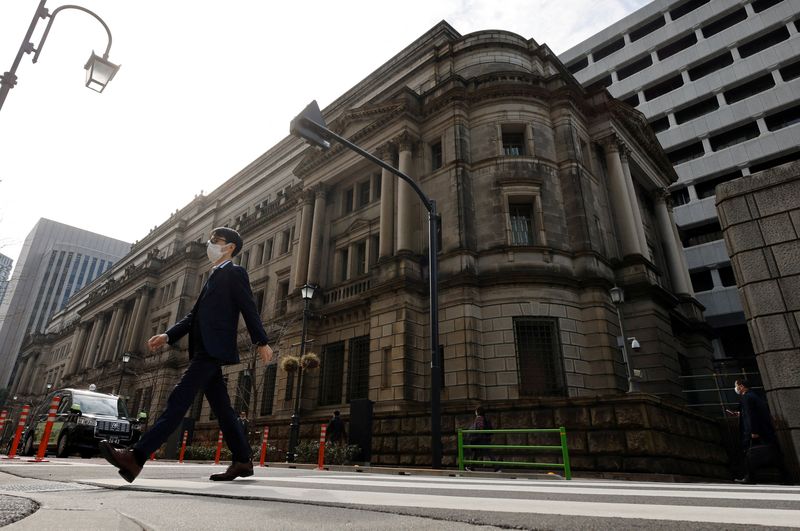By Takaya Yamaguchi and Tetsushi Kajimoto
TOKYO (Reuters) -Japan's budget demands will hit a record for the next fiscal year, exceeding 112 trillion yen ($767 billion), sources told Reuters, as rising interest rates add to debt-servicing costs and military and social security spending rises.
The government is saddled with the industrial world's heaviest debt at more than twice the size of its economy, adding to the urgency for Tokyo to shift from crisis-mode fiscal stimulus.
Budget demands for the fiscal year ending March 2025 have grown due to higher military outlays, as Japan seeks to counter geopolitical risks in the region from China and North Korea, and to fund bulging social security costs for a rapidly ageing population.
For years, the government has kept borrowing costs, as measured by assumed interest rates, low, effectively allowing the Bank of Japan (BOJ) to bankroll debt.
Following the BOJ's decision last month to allow its benchmark 10-year bond yield target to move more flexibly, however, the government raised the assumed interest rates, which are applied to interest payments on debt.
The assumed interest rate would increase to 1.5% for the next fiscal year from the current record low of 1.1%, bringing debt-servicing costs for interest payments and debt redemption to 28.14 trillion yen. That is up from 25.25 trillion yen this year, the sources said, requesting anonymity as they were not authorised to speak publicly.
"I don't think rate rises will accelerate anytime soon given the BOJ's cautious stance against raising rates. But eventually rising rates may cause frictions between the government and the central bank," said Izuru Kato, chief economist at Totan Research.
"That shouldn't prevent the BOJ from raising rates when necessary to cope with inflation. What's important is not to fall behind the curve."
The increase followed the BOJ's decision last month to allow the 10-year bond yield to move up to 1% from 0.5% previously.
The BOJ guides short-term interest rates at -0.1%, buying huge amounts of government bonds to cap the 10-year yield around 0% as part of efforts to revive consumer demand.
The 10-year bond yield has hit its highest in nearly a decade, and further rises in interest rates could put upward pressure on debt-servicing costs and the overall budget.
Government ministries were also allowed to request unspecified amounts of money for measures to expand childcare and mitigate rising prices, which would further lift actual budget demands.

For the current fiscal year, the annual budget hit a record 114 trillion yen, boosted by steps to cope with COVID.
Social security accounts for nearly one-third of budget spending, making it the lion's share of the overall budget, followed by debt-servicing costs, which make up more than a fifth of the budget. ($1 = 145.9800 yen)